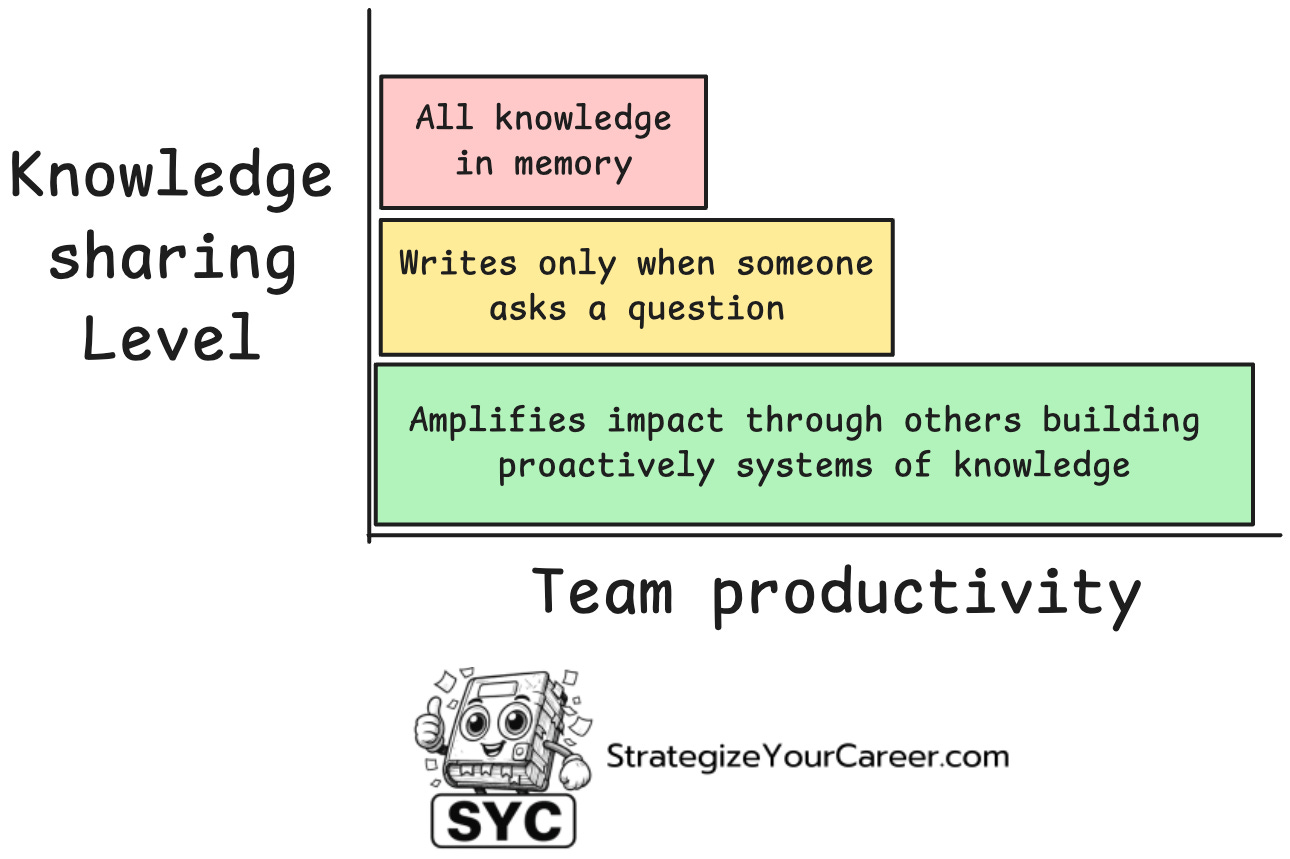📛 Why most engineers fail at knowledge sharing (6 habits that make you stand out)
Most engineers fail at knowledge sharing, hurting their growth. Learn 6 habits to share knowledge like a senior and stand out in your team.
Most software engineers say they value knowledge sharing. But when you look at their behavior, it’s all meetings, DMs, and tribal memory. They complain when things break, but they never document the fix. They push work forward, but never explain their reasoning. They give feedback, but never the principles behind it.
This isn’t just inefficient. It slows down your team, weakens your technical judgment, and traps you in the “doer” bucket instead of helping you stand out as a leader.
Here’s how I’ve approached sharing knowledge like a Senior Engineer—using writing, structure, and process, not just kindness and availability.
⭐ In this post, you'll learn
Why writing is the most scalable way to grow influence
How overcommunication beats invisible “best practices”
How to avoid knowledge silos and break others'
Tactics to turn tasks into visible team-level value
Red flags that signal a poor knowledge-sharing culture


